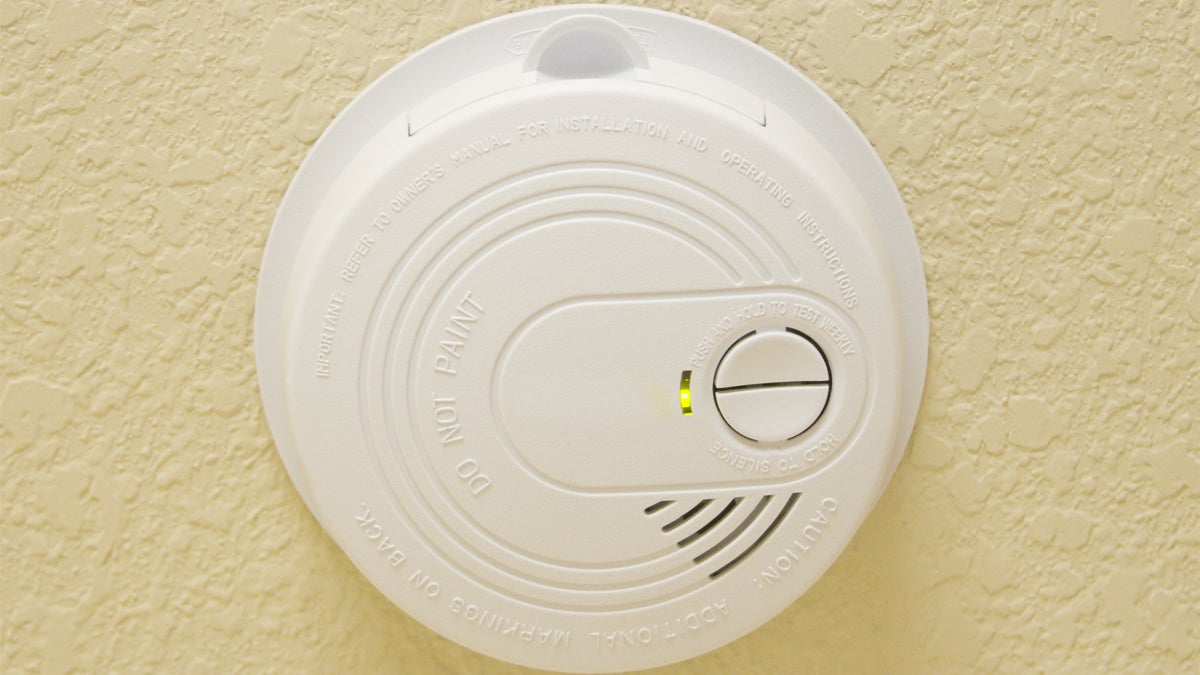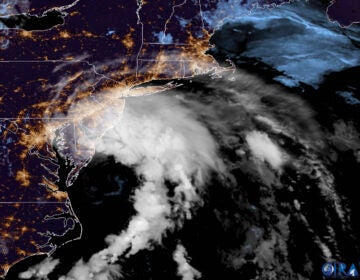Extreme humidity can set off smoke alarms

Smoked detector image courtesy of Shutterstock.com
It has been insufferable lately— hot and sticky enough to set off smoke alarms.
The Philadelphia region has been especially muggy, and the extreme humidity can cause certain types of smoke detectors to register false alarms.
The most common type of detectors use “ionization technology,” creating charged particles inside the device, said Temple University engineering professor Dennis Silage.
When smoke particles enter the ionization chamber inside the alarm, those charged particles are neutralized, Silage said. When that happens, “the sensor thinks that there’s a problem, that there might be a smoke.” But when it’s especially humid, the device reacts the same way to water vapor as it does to smoke.
Smoke detector manufacturers estimate these false alarms can happen once humidity reaches 85 percent, but according to Silage, weak batteries can increase the chance of false alarm.
“We’ve been having some very humid days,” he said. “So I would imagine this could be quite endemic at the moment.”
As for the rumor that bugs can cause smoke detectors to go off — that’s true as well. Bugs interfere with the other type of smoke alarms, which use photoelectric detectors.
Photoelectric alarms use light sensors, and “if a critter, or a small insect crawls between the light source and the detector,” Silage said, it fools the detector into thinking it sees smoke.
Typically, ionization alarms are more susceptible to false alarms. Smoke and steam from cooking, tobacco or showers can all cause them to sound.
When it comes to detecting actual fires, a report conducted by the Fire Safety Council concluded that ionization detectors are better at sensing openly burning fires, and photoelectric detectors respond faster to smoldering ones.
Silage recommends buying alarms that combine both types of technology.
Though the false alarms can be frustrating, Silage said, it could be worse. “If it’s not a false alarm, then you have a problem.”
WHYY is your source for fact-based, in-depth journalism and information. As a nonprofit organization, we rely on financial support from readers like you. Please give today.




